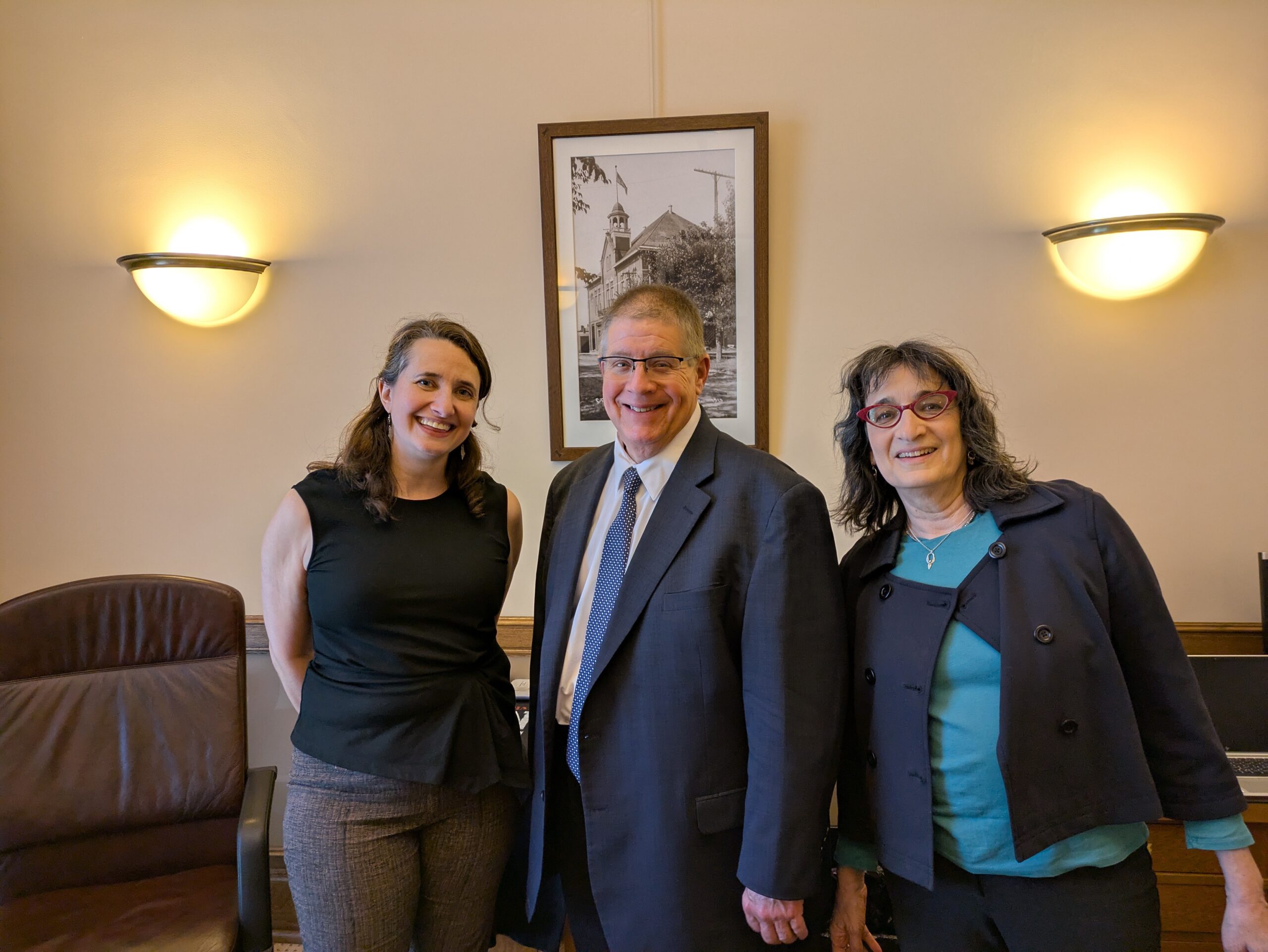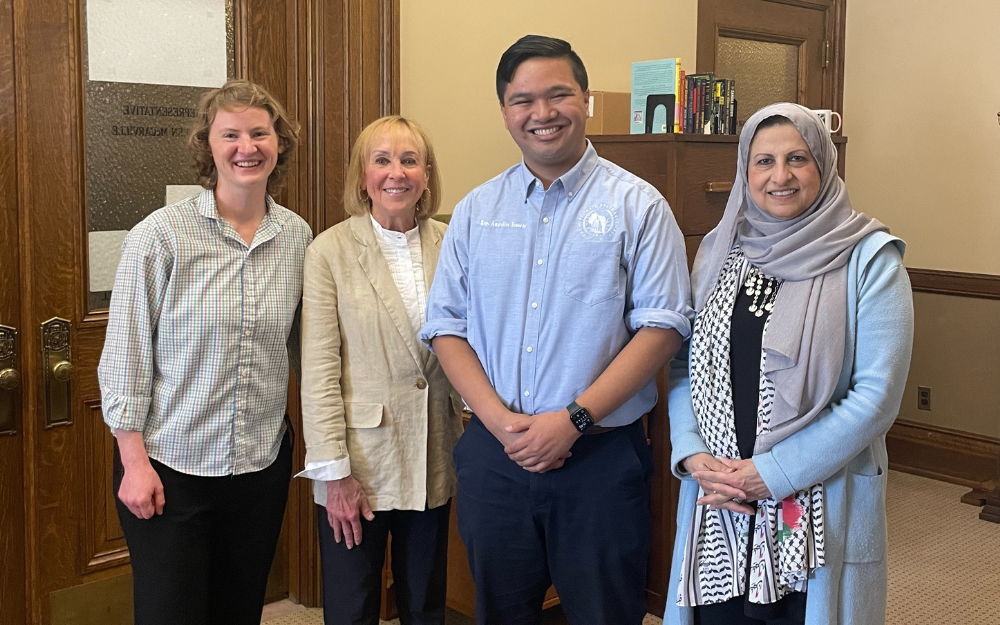
Photo credit: Yaseen Najeeb
Carla Rattunde, Rep. Angelito Tenorio (D-Milwaukee), Sandy Pasch, Jewish Voice for Peace MKE and Janan Najeeb, co-chair of Wisconsin Coalition for Justice in Palestine
Community leaders and members gathered at the Wisconsin State Capitol on Wednesday, April 23rd for a long day of lobbying to repeal Wisconsin’s anti-boycott legislation, 2017 Wisconsin Act 248 (also known as Assembly Bill 553). Signed into law by former Governor Scott Walker, Act 248 requires local government agencies and state contracts receiving over $100,000 to pledge not to engage in an academic, cultural, or political boycott of Israel. Act 248 passed with a voice vote at the time, despite many speaking out against it.
Wisconsin is one of 38 states with an anti-boycott law in place. These laws derive from model legislation by the American Legislative Exchange Council (ALEC), an organization of conservative legislators and private interest representatives that networks with lobbyists.
The newly formed action group Wisconsin Right to Boycott (WRTB), in collaboration with the Wisconsin Coalition for Justice in Palestine, organized the lobbying day. Over 100 people visited Democratic and Republican officials to achieve bipartisan support for a repeal of Act 248.
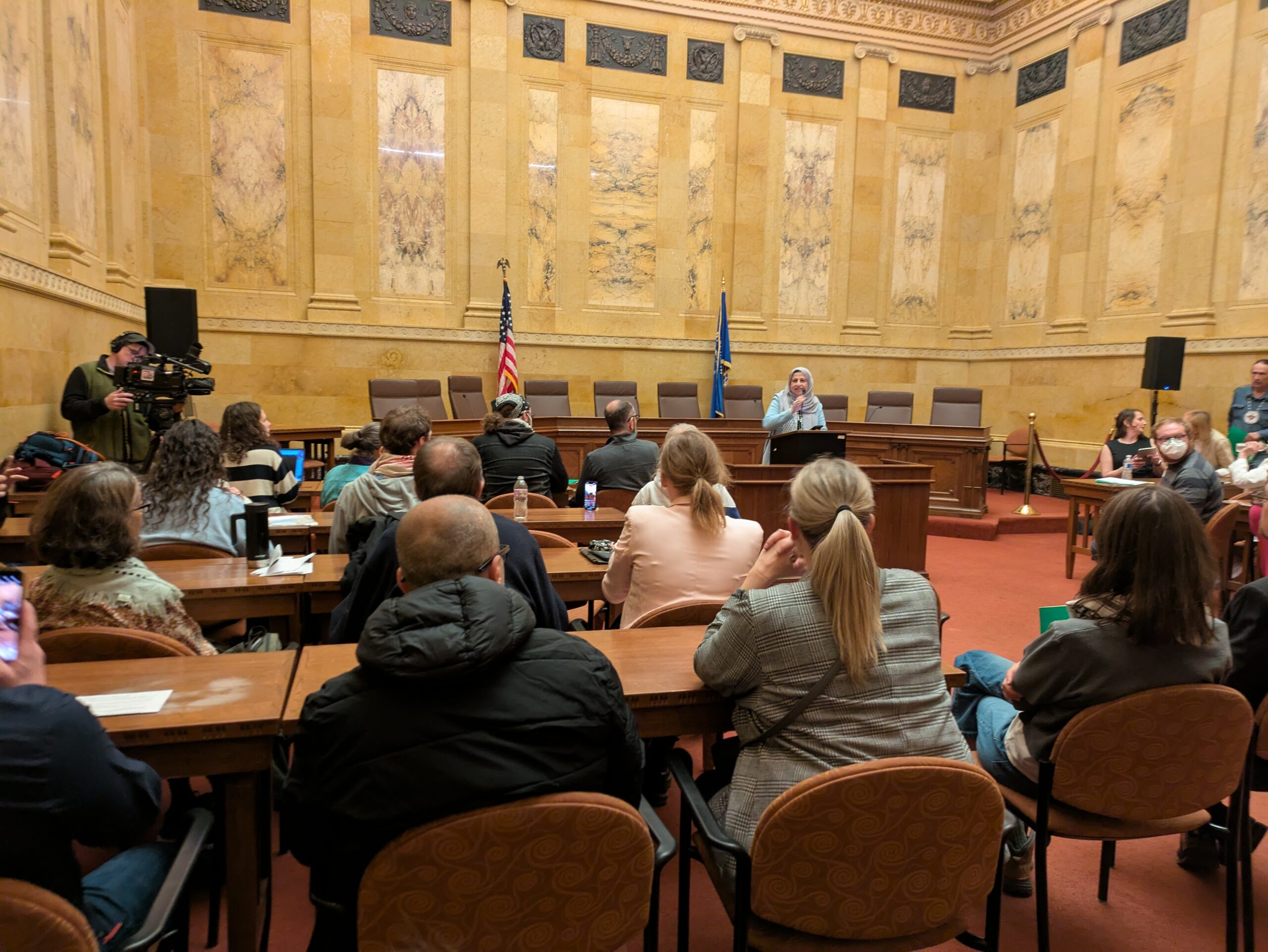
Photo credit: Yaseen Najeeb
Multiple media groups recorded and live streamed the press conference by Wisconsin Right to Boycott between lobbying sessions at the State Capitol.
After speaking to over 100 senators and representatives throughout the day, lobbyists deliberated with one another at Grace Episcopal Church across from the Capitol, where they learned that many politicians currently in office, both Democrats and Republicans, were not even familiar with Act 248 when it was brought to their attention.
At a press conference held by WRTB between lobbying sessions, co-chair of the Wisconsin Coalition for Justice in Palestine Janan Najeeb said, “People are coming from all over Wisconsin, and it’s important because we’re talking about a very significant constitutional right, our freedom of speech.”
Communities and organizers are concerned that by mandating that countries not be boycotted, Wisconsin is essentially demanding pledged allegiance to a foreign nation just for someone to do business. This could have a “chilling effect,” making it easier to restrict other boycotts regarding issues like fossil fuels or companies that violate environmental standards.
Photo credit: Yaseen Najeeb
Left to right, press conference moderator Miriam Hasan, member of Wisconsin Right to Boycott, Rep. David Armstrong (R- Rice Lake) and Tsela Barr Jewish Voice for Peace – Madison
Literature provided to officials by lobbyists also explained that the law is vague, difficult to prove is being followed, creates an exception for Israel only, and interferes with contractors’ abilities to make informed operational decisions.
“This is in complete conflict with the First Amendment, and it has to be repealed,” Najeeb affirmed. She cited the 1982 Supreme Court case NAACP v. Claiborne Hardware Co., which ruled that peaceful political boycotts are a lawful rejection of injustice and that states do not have the power to penalize those engaged in such boycotts. Najeeb also mentioned how boycotts were righteously used as a means of protest during Apartheid South Africa and the Civil Rights Movement.
Former Wisconsin state legislator and Jewish Voice For Peace (JVP) Milwaukee member Sandy Pasch took the podium after Najeeb, beginning by refuting common claims of antisemitism regarding boycotts of Israel. “I am Jewish. I have been critical of Israel’s treatment of Palestinians for years.”
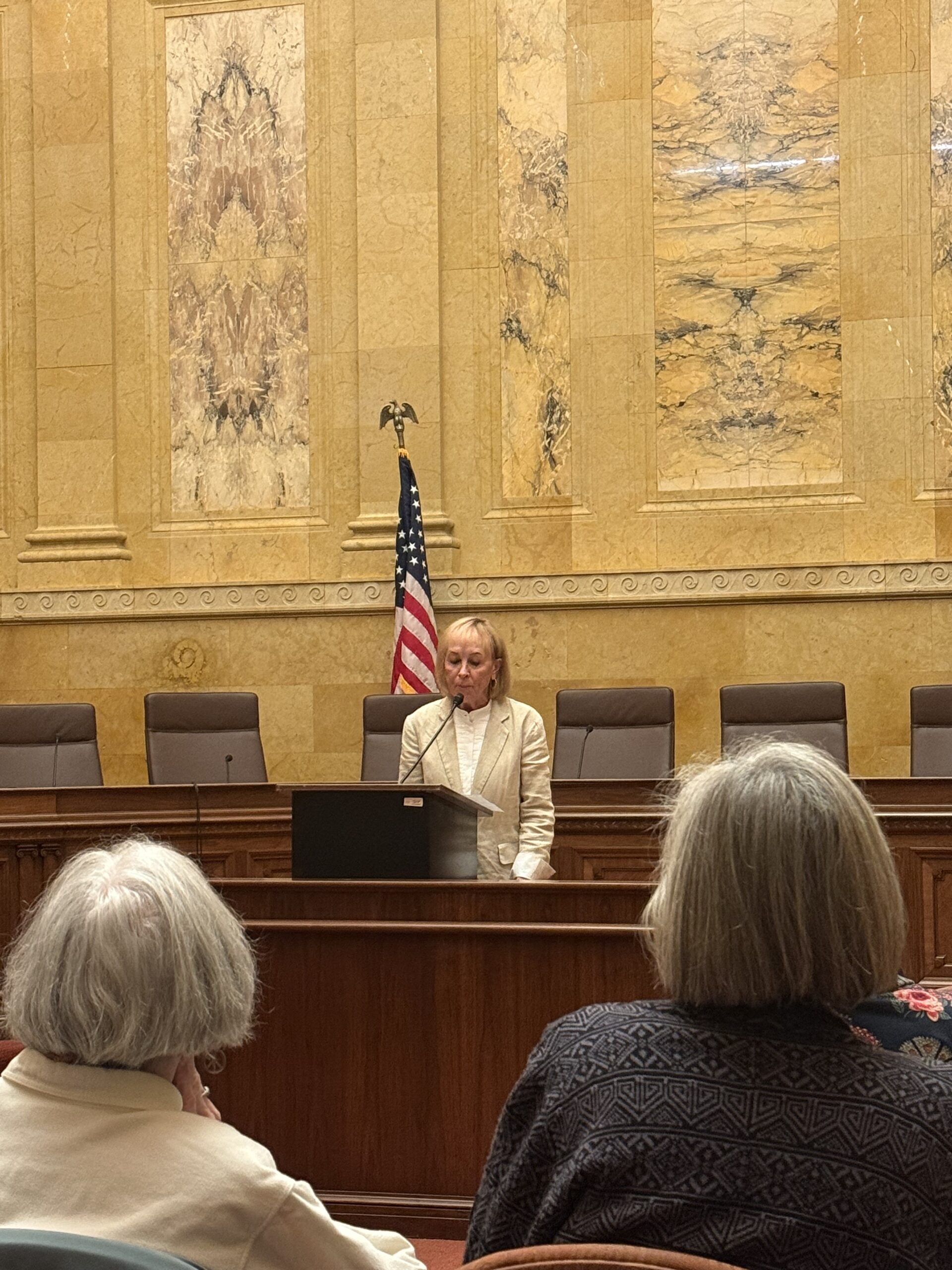
Sandy Pasch, previously served in the Wisconsin State Assembly as a Democrat for north-central Milwaukee County, was representing Jewish Voice for Peace at the press conference.
She continued, “For the past 19 months, we have been witnessing a genocide of the Palestinian people. I am one of thousands of other Jews filled with deep grief and rage, and I know I have other Jewish friends in the audience lobbying with us.”
Amnesty International and Human Rights Watch have both found Israel to be presently committing genocide in Palestine since October 2023, and U.S. citizens have engaged in such boycotts to refuse complicity in Israeli atrocities.
Like many Jewish Americans, Pasch is concerned about the looming threat of antisemitism. Still, she recognizes that repealing the anti-boycott law would not be antisemitic; in fact, she believes that these laws do nothing to make Jews safer anywhere. Pasch also noted how Act 248 is a testament to the rise in authoritarianism that the U.S. sees today.
“We support the free speech use of boycotts, divestments, and sanctions as essential tools to pressure the Israeli government to follow international law and end the ongoing genocide,” Pasch stated.
Speaking third at the press conference was Indigenous activist Paul DeMain of Sawyer County, who pointed out how many elected officials spoken to on Wednesday were unaware of Act 248 in the first place.
“The history of boycotts started with the Boston Tea Party, when the United States told England that they were unhappy with their particular policies,” DeMain explained. “The state is so very selective, and it seems unconstitutional. I don’t believe that any one of the district representatives that we met with today could probably tell you about why it was passed.”
Final press conference speaker Rev. Darren Utley of Racine’s First Presbyterian Church connected the story of Palm Sunday with the struggle of the Palestinian people, since Jesus marched through Jerusalem and encountered crowds who wanted him to save them from persecution.
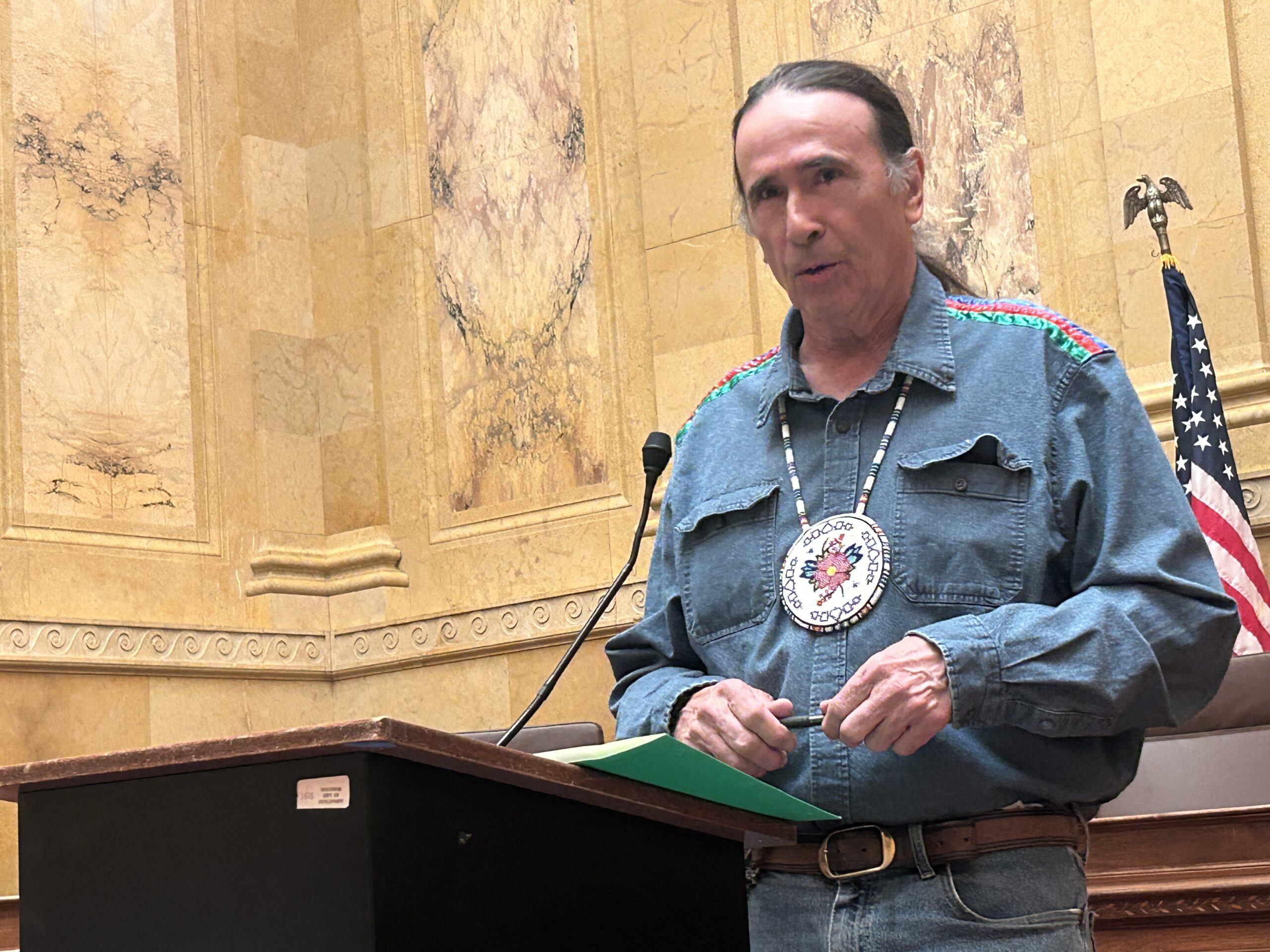
Photo credit: Ben Slowey
Paul DeMain, member of the Oneida Nation of WI and retired CEO of Indian Country Communications addressed the press.
“He knew that that was where the seat of power was,” Utley remarked about Palm Sunday. “That is where people were deciding the fate of the people who he was trying to heal and minister to.”
Utley contended that everyone showing up to lobby on Wednesday follows an ancient tradition of standing up for what is right in the very halls that ignore what is right.
“We have to have the right to refuse to purchase and participate in things that are unjust and wrong,” he proclaimed. “It is a part of the history of this nation that we must have these freedoms. We need to be in the street, raising our voices. That is how we bring the justice that we want to see in the world.”
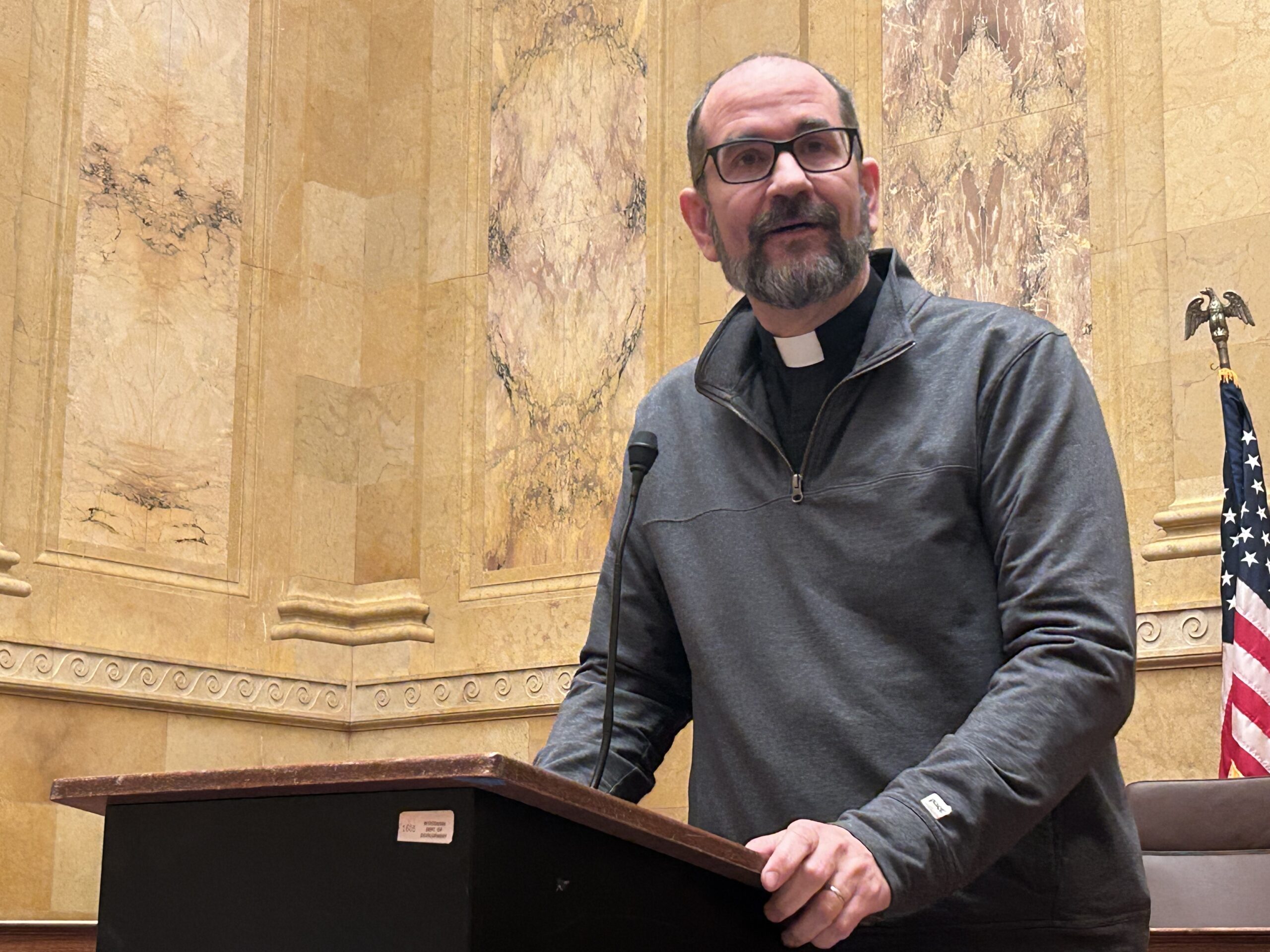
Photo credit: Ben Slowey
Rev. Darren Utley First Presbyterian Church in Racine, was one of four speakers in the press conference.
As part of their ongoing campaign, Wisconsin Right to Boycott encourages community members to contact their district representatives about supporting the repeal of Act 248.
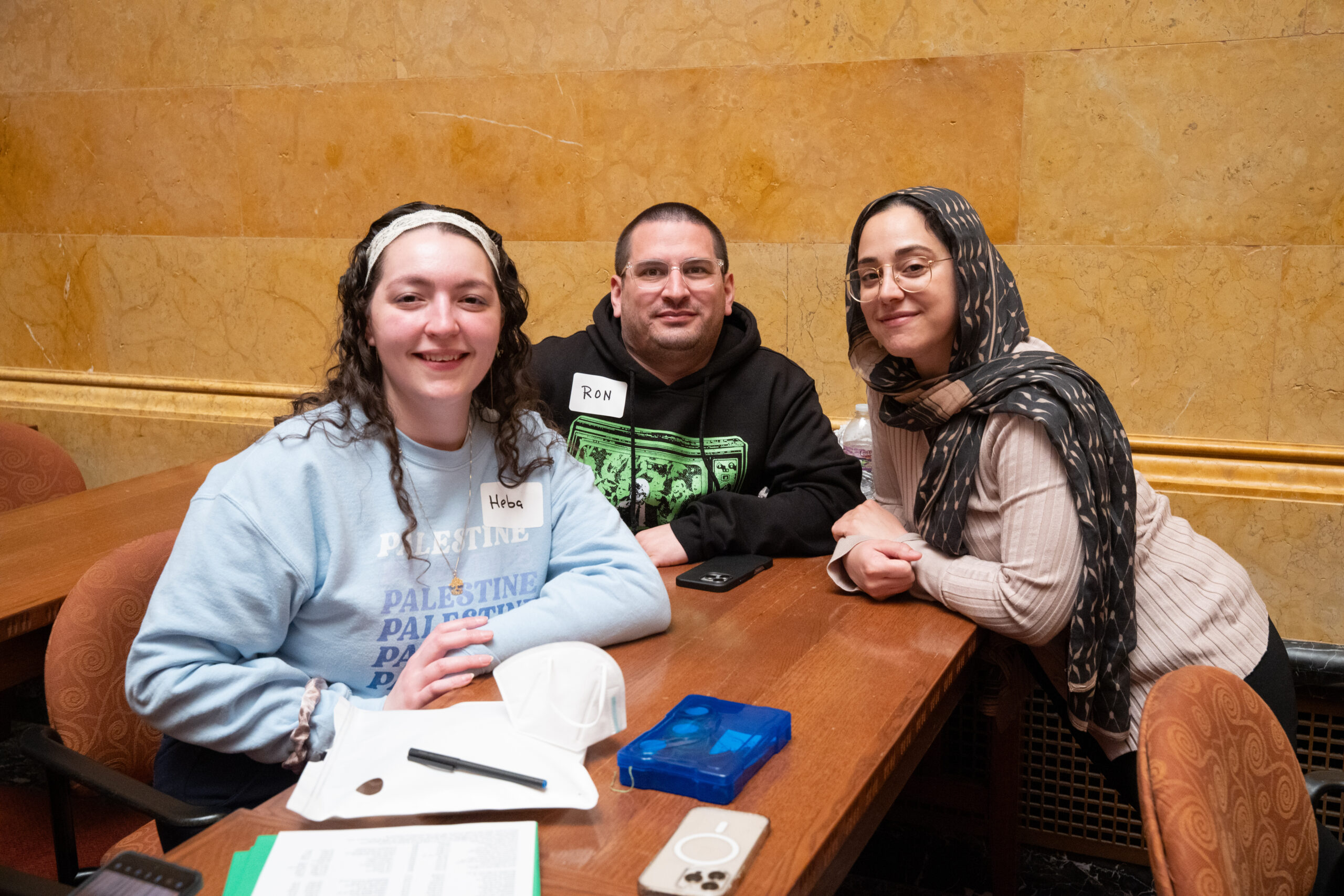
Photo credit: Yaseen Najeeb
Heba Mohammad, Milwaukee 4 Palestine, Ron Jansen and Reema Ahmad, local organizers
